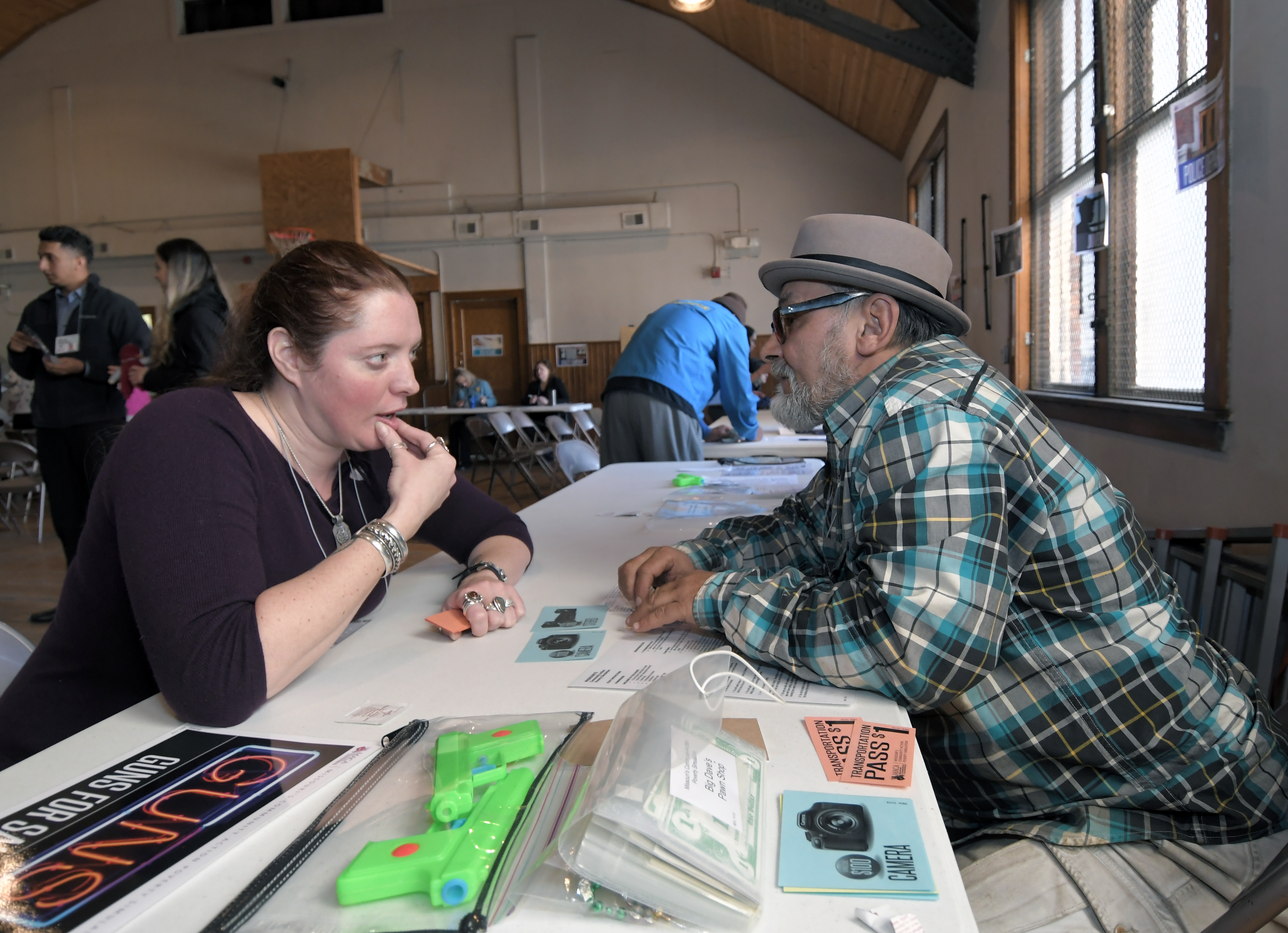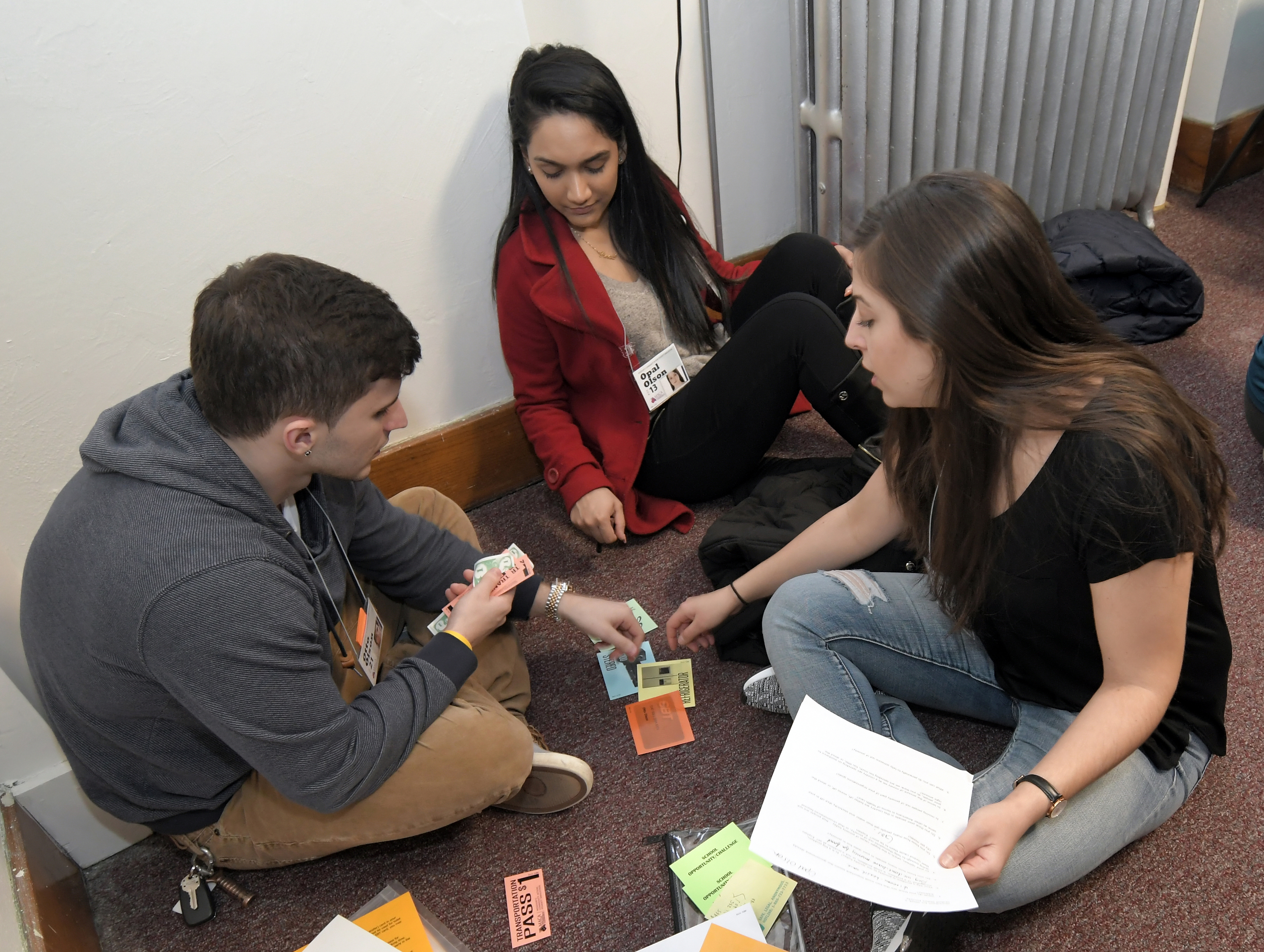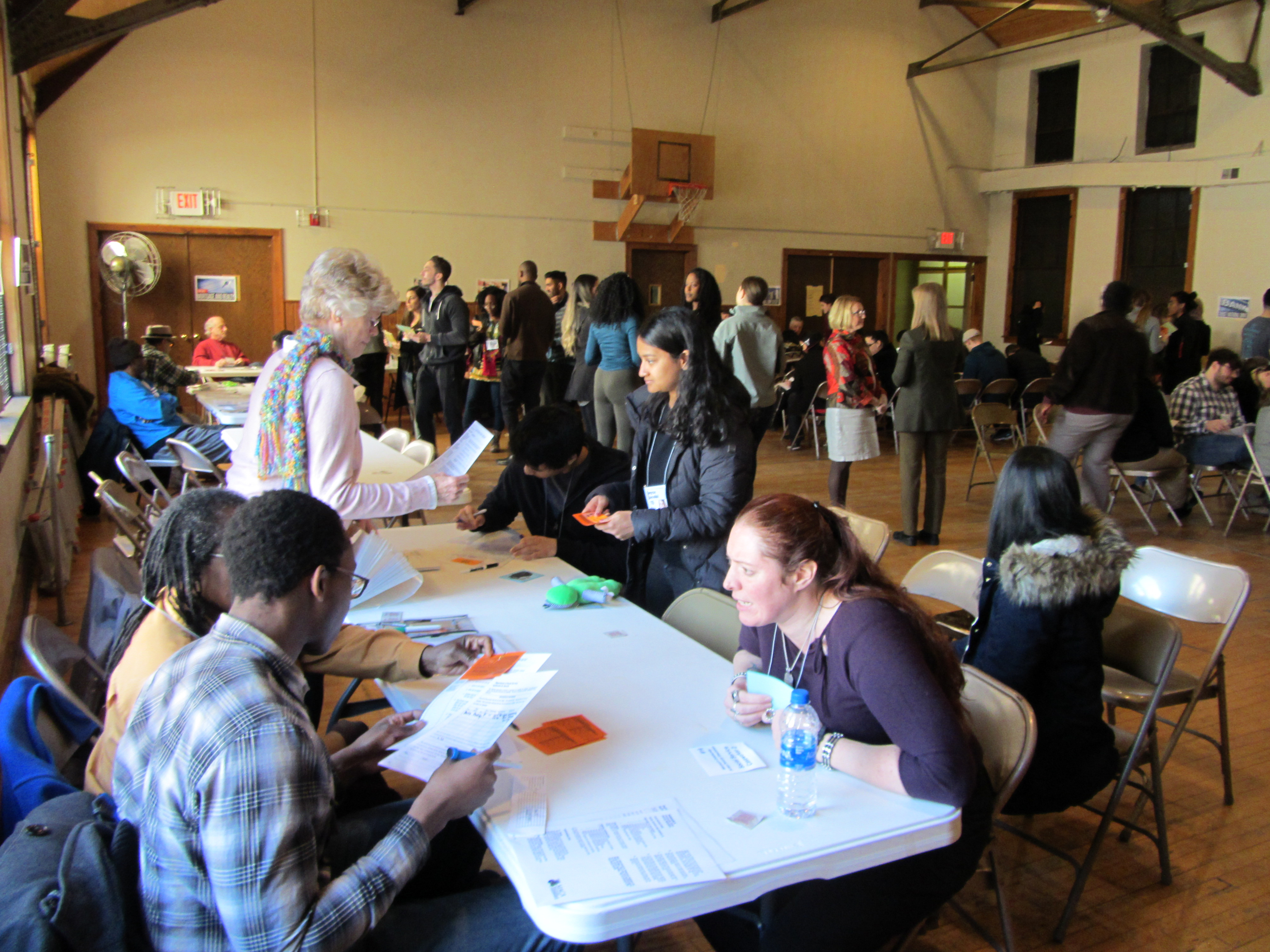Poverty Simulation Training Brings Students and Community Together


On February 27 and March 1, 2018, the WSU College of Nursing in partnership with Michigan AHEC's Southeast Regional Center held Poverty Simulation training for WSU College of Nursing students and School of Medicine Students at Messiah Church in Detroit.
The training provides students with a unique opportunity to help them understand what life is like with a shortage of money and an abundance of stress. The goal of the training is to prepare students for the potential challenges facing their future patients and will increase their empathy and effectiveness as they care for patients facing these challenges.
Over 116 students and 16 community volunteers participated in the event. Using a simulation kit, students assumed the roles of families facing poverty and were assigned the task to provide for basic necessities and shelter and had to make decisions on how to spend what little money they were given in order to survive. Community volunteers took on the role of vendors representing community resources and services such as a bank, utility company, pawn broker, day care center, etc. As the students go through a simulated month (represented by four 15-minute "weeks") they tried to provide for their families while dealing with crime, utility shut-offs, unemployment and a host of other issues.
"Participation in the poverty simulation provides students with experience in the struggles faced by vulnerable populations, a reflection of their personal feelings regarding vulnerable population, knowledge of the importance of community resources for vulnerable populations and interprofessional experiential learning between nursing and medical students," said Dr. Joan Bickes, Assistant Professor in the WSU College of Nursing who manages the Poverty Simulation training. "Perhaps most importantly, the training builds empathy for those patients in vulnerable situations by their health care providers."
Since the WSU College of Nursing started holding Poverty Simulation for students in 2014 the program has continued to grow and expand. "We want all students graduating from WSU to have empathy for the vulnerable in our community. The poverty simulation allows students to have a glimpse into the life of those experiencing poverty," added Dr. Bickes. Future plans for the poverty simulation are to recruit other health professional programs, as well as other students from other units on campus, to join in the simulation experience.

.